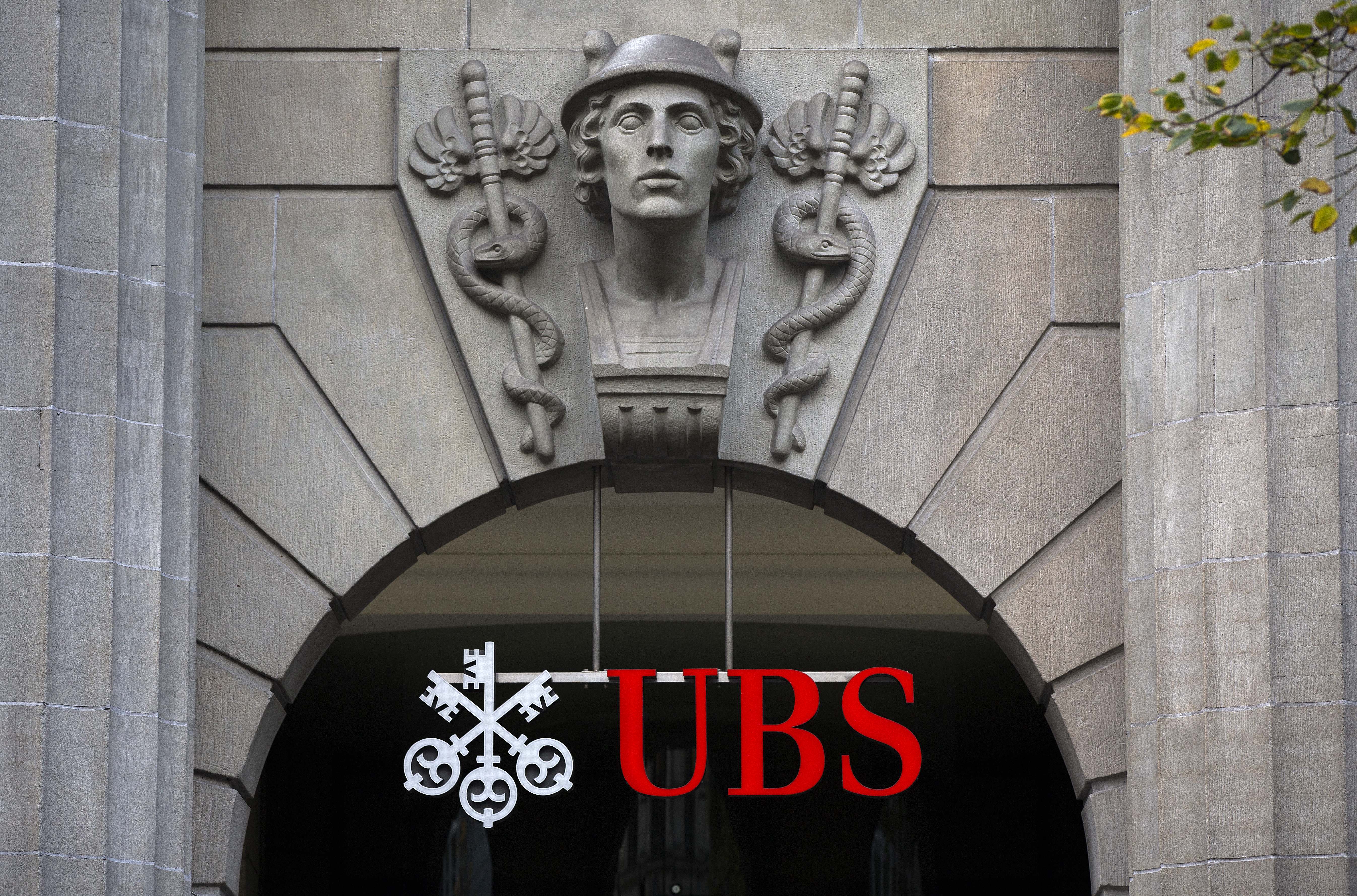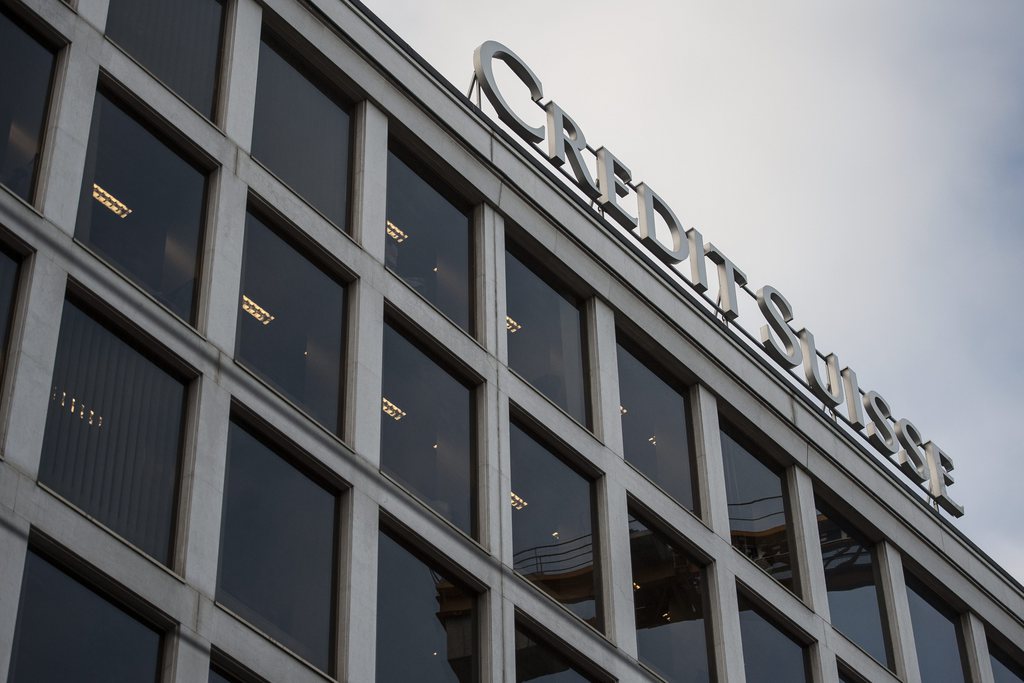Swiss banks return to the United States

A handful of Swiss banking institutes have started to re-engage with the United States off-shore market – entirely within the law. Their assets under management (AUM) are seeing a spectacular increase. At UBS the AUM has risen 41% over the past five years.
Images of a picture-book world are passing by: mountains in the red glow of a sunset, Zurich’s old town, a little red train snaking alongside a turquoise mountain lake, and a pot of cheese fondue. “Switzerland is one of the most successful and stable economies in the world,” declares the narrator. “Working with UBS-SFA means you benefit from its international investment expertise and a global platform.”
Targeting the US market, the video sells the services of UBS Swiss Financial Advisers (UBS-SFA)External link, a subsidiary of Switzerland’s top bank. It’s all within the law. “We only accept clients who have declared all their assets,” said René Marty, chief executive officer of this branch, which is registered with US financial markets supervisor SEC. Founded in 2004 and employing 63 people in Switzerland, it dominates a sensitive market that is expanding: off-shore funds registered with the US tax authorities.
“Following the tax dispute with the US, most Swiss banks have withdrawn from this market,” noted Stephen Wall, an expert from financial research group Aite. “But a small number of institutions have instead chosen to re-engage with it.”
In a report published in autumn 2013, he analysed 34 institutes: seven of them banks, the remainder independent asset managers. At the end of 2012, they managed assets worth $14.1 billion (CHF12.8 billion). UBS-SFA was the clear leader of this market with $4.7 billion under management, followed by Pictet North America Advisors ($2.6 billion) and Vontobel Swiss Wealth Advisors ($1.3 billion). The top three account for 61% of this segment.
The other establishments include Banque Syz, Kaiser Ritter and Bank of Canada’s Swiss subsidiary as well as other independent asset managers like Lugano Financial Advisors, Capitalia, Marcuard Family Office, Quanta Finance or Swisspartners Advisors. At the end of 2012, they managed assets worth $133 million to $700 million.
Double-digit growth
Their numbers have recently exploded, jumping from four institutions in 2007 to 34 in 2013. Founded in 2010, Vontobel Swiss Wealth Advisors with its 20 employees is the most active unit. “Vontobel is the first Swiss bank registered with the SEC as an investment advisor to have established a presence on American soil by opening a branch in Dallas in 2012,” Wall said.
“We have identified a promising market over there with new wealth generated by the non-conventional fossil energy [fracking] boom,” explained spokeswoman Rebecca Garcia. The assets of the Vontobel division increased 27% to $1.6 billion in 2013.
“Since its creation in 2004, UBS-SFA has posted double-digit increases every year,” Marty said. Between 2009 and 2013 its assets rose 41% to CHF4.8 billion. Another spectacular performance was seen at Marcuard Family Office, where the AUM rose more than six-fold to $3.2 billion in 2013 alone.
Gaining an edge
So what is the motivation for those institutions to beard the lion in his den, particularly as some have not even settled all their disputes with the US authorities? The boom of the legal off-shore market is fed by vast amounts of money deposited in Switzerland by US nationals who have recently been cleared and who are being snubbed by other Swiss banks.
“The market of US investors who have already invested outside their home market seems the most accessible because they have already made the first step of diversification outside their country,” confirmed Ricardo Payro, spokesman of Banque Syz, whose branch focusing on US off-shore business was founded in 2012.
“Some of these banks probably had a large pool of undeclared clients on their books that they now want to service legally,” said a keen observer of this market, who did not want to be named.
In the future they could dig up clients who hold bank accounts – without declaring them – in other off-shore markets like in the Caribbean, Panama, the Channel Islands, Singapore or Hong Kong. The US justice system is just starting to get interested, which carries the risk of triggering a wave of regulations.
Yet, Switzerland is in a very good position to take advantage. “Since Switzerland was the first country the US decided to focus its tax evasion efforts on, its banks have gained an edge on their competitors. They have already begun to engage in the legal offshore market,” said Wall.
Target: the on-shore market
But the real goose that lays golden eggs is to be found in the US on-shore market, which has an eye overseas. “The uncertainties with regard to the level of debt and the weakness of the public funds in the US encourage wealthy individuals to hedge against risks by investing a part of their assets outside their home market, Payro explained.
This move also allows them to invest in emerging markets that US banks do not cover as much, as well as other currencies and a more conservative investment approach. “In the United States, the emphasis is on accumulation, while in Switzerland the focus is on the preservation of assets,” Wall explained. “This appeals to a slightly older crowd.”
Or more prosaically, even if these assets can no longer be hidden from the tax authorities, they can still be kept away from the watchful eyes of others.
“Some people are in the midst of a heated divorce and do not want their wives to know how much money they have,” explained Scott Kaufmann, a California lawyer who has defended many Americans caught by the IRS.
Others have a job in an area like in medicine where litigations are frequent. “Keeping some of one’s money abroad helps to protect it against compensation claims,” Wall said.
Costs on the rise
Overall, the Swiss financial institutions that have chosen to engage with the US offshore market could expect to have “some $50 billion under management in the medium term and up to $100 billion in the longer term, if they can maximise their full opportunity”, Wall calculated.
But not everything is rosy. “The costs in connection with the penetration of this market and the evolution of regulations continue to increase,” underlined Marty. The FATCA agreement that came into force at the beginning of July and new transparency requirements will add to the tab.
The main battle for Swiss institutions wanting to seduce US clients will take place on the image front. “Most of my customers do not want to hear about Swiss banks anymore,” Kaufmann said. “Once they have paid their fines, they have one single desire: to repatriate their funds to America.”
Canada, Switzerland’s main rival
The 34 Swiss institutions that offer legal off-shore services to Americans are not alone on the market. IT comprises 135 companies from 24 countries, according to a report by the financial research group Aite. The list is topped by Canada (50), followed by Switzerland (34) and Britain (16). Those three countries dominate three quarters of the market. Other countries include Hong Kong (4), the British Virgin Islands (3), South Korea (3) and India (3).
With regards to assets under management, UBS Swiss Financial Advisors ranks only 15th and Pictet North America Advisors 20th. In first place is Jarislowski Fraser of Canada with funds worth $35 billion under management at the end of 2013.
Whiter than white?
The three banks that dominate the legal off-shore market in the US – UBS, Pictet and Vontobel – have not really altogether overcome their trouble with the US authorities.
In 2009, UBS agreed to pay a $780 million fine to settle litigations. But some of its employees, like former head of asset management Raoul Weil, will still have to face lawsuits. His trial will begin this autumn.
Pictet is one of the 14 banks under investigation by the US justice department. It is awaiting its fine.
Vontobel has placed itself under category 3 – banks that say they have nothing to reproach themselves for. Its name has, however, come up during the trial of a former Julius Baer banker, who admitted in 2013 that he used to have a non-declared account with Vontobel.
(Translated from French by Chantal Britt)

In compliance with the JTI standards
More: SWI swissinfo.ch certified by the Journalism Trust Initiative










You can find an overview of ongoing debates with our journalists here . Please join us!
If you want to start a conversation about a topic raised in this article or want to report factual errors, email us at english@swissinfo.ch.